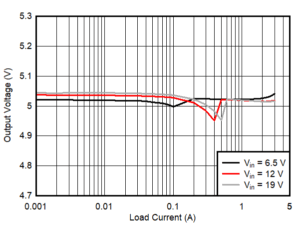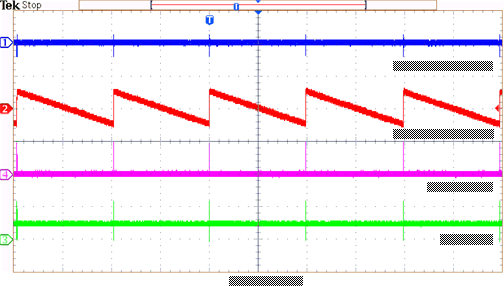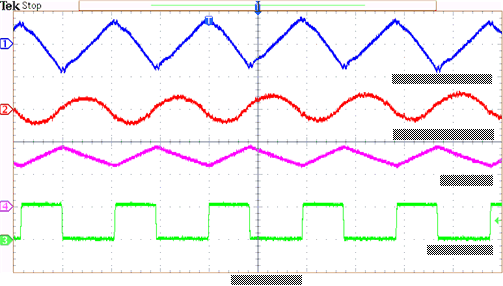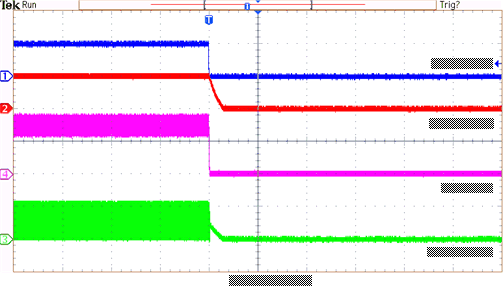SLVSEI2A November 2018 – May 2019 TPS56339
PRODUCTION DATA.
- 1 Features
- 2 Applications
- 3 Description
- 4 Revision History
- 5 Pin Configuration and Functions
- 6 Specifications
-
7 Detailed Description
- 7.1 Overview
- 7.2 Functional Block Diagram
- 7.3
Feature Description
- 7.3.1 Advanced Emulated Current Mode Control
- 7.3.2 Enable and Adjusting Undervoltage Lockout
- 7.3.3 Soft Start and Pre-Biased Soft Start
- 7.3.4 Voltage Reference
- 7.3.5 Minimum ON-time, Minimum OFF-time and Frequency Foldback at Dropout Conditions
- 7.3.6 Overcurrent and Undervoltage Protection
- 7.3.7 Thermal Shutdown
- 7.4 Device Functional Modes
- 7.5 Light-Load Operation
- 8 Application and Implementation
- 9 Power Supply Recommendations
- 10Layout
- 11Device and Documentation Support
- 12Mechanical, Packaging, and Orderable Information
8.2.4 Application Curves
VIN = 12 V, L1= 5.6 µH, COUT = 44 µF, TA = 25 °C. (unless otherwise noted)


A.
Figure 22. Case Temperature Rise vs Load Current 



1.
Figure 30. Enable Relative to EN 
A.
Figure 32. Short Protection 






1.
Figure 31. Disable Relative to EN 
A.
Figure 33. Short Recovery